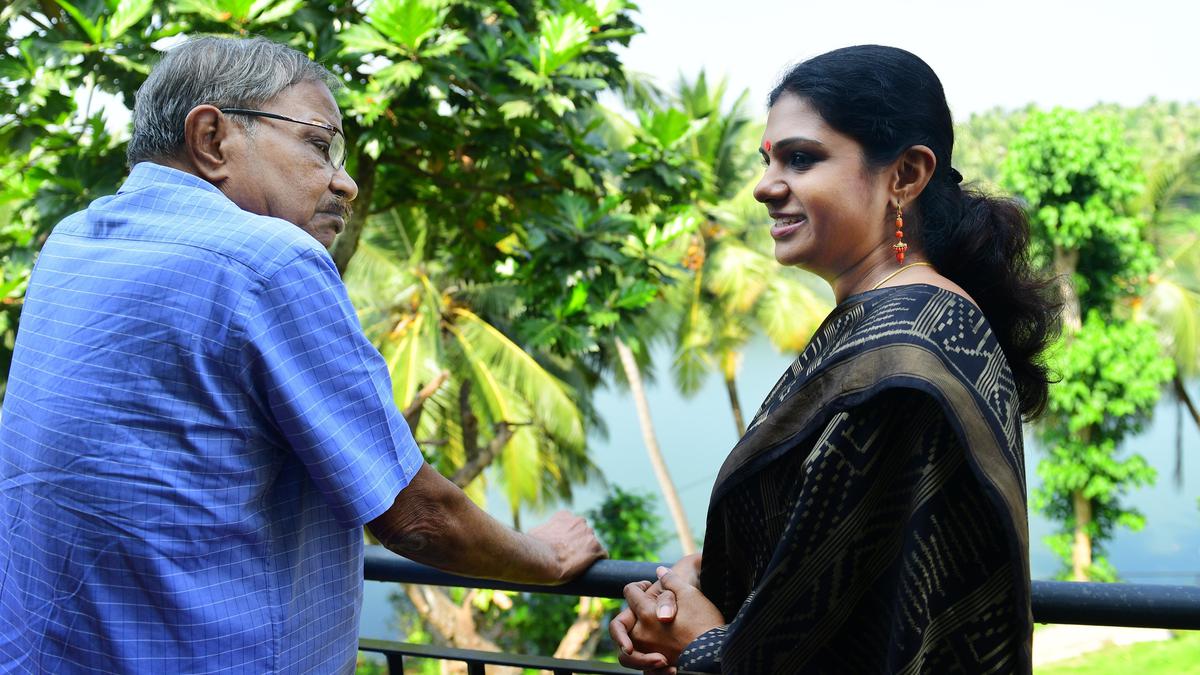
Nine shades of life
The Hindu
Celebrations for MT Vasudevan Nair's 90th birthday include nine short films based on his timeless stories. Directors like Santosh Sivan, Priyadarsan and Jayaraj are involved in the project. His daughter, Aswathy Nair, chose stories with an abiding human element and female protagonists. Stars like Mammoooty, Mohanlal and Fahad Fasil have acted in the films. The trailer will be released soon and the films will be screened throughout the year-long celebrations. MT's works have transcended geographical boundaries and his novels and stories have been translated into many languages. A literary seminar and five-day festival are also planned. To introduce MT to a teen, Aswathy suggests reading his short stories and watching his classics.
Quietly but lovingly, a marriage of cinema and literature is taking place. The celebrations promise to go on for a year. All lovers, fans and followers of the inimitable MT Vasudevan Nair are welcome to attend. As MT (as he is known to legions of his readers), turns 90 on July 15, nine short films beckon cinegoers. With the likes of Santosh Sivan, Priyadarsan and Jayaraj involved with the project called Manorathangal (Mindscapes), each film promises to be a fulfilling experience. Every venture is brief, merely 40 minutes. Every one of them is based on a short story by MT that has outlived the decade in which it was penned.
The thought for this celebration of MT’s nine decades came to his daughter, Aswathy Nair, herself a noted Bharatanatyam dancer, during the COVID-19 lockdown. In the self-limiting days of the pandemic, Aswathy’s mind soared, and she decided to put together major celebrations to mark the 90th birthday of her father, a versatile genius who has contributed generously to enrich the world of literature and cinema.
“Initially, I had chosen 20 stories. Then I brought them down to 10. Finally, in consultation with my father, I opted for these nine stories for their timeless human element,” says Aswathy, who is a common element, a kind of sutradhar for the year-long celebrations of the life and works of MT.
When Aswathy decided to pencil in on the rich collection of MT’s work, her first choice was, inevitably, stories with women protagonist. “ I wanted women as the protagonists but discovered many wonderful stories with male protagonists. Ultimately, I chose stories with an abiding human element, with emotions of love, lust, greed and revenge, etc. They project a writer’s versatility,” says Aswathy.
The process of selection of directors and artists for these films for OTT was easy, and in a way, inevitable. Santosh Sivan is associated with these films. He has worked with MT. “He has worked as a cinematographer with my father. His camera captures Nature like nobody else. He has a different way of thinking. We have family relations too,” says Aswathy, explaining the ace director-cinematographer’s association with the project.
Likewise, noted director Priyadarsan who has helmed films Olavum Theeravum (Ripples and the River Bank) and Silalikhitham (Inscriptions) was keen to work on MT’s short stories for a long time. “He waited for more than a quarter century to make a film on MT’s short stories. The same for Jayaraj and Shyamaprasad who have directed Swargam Thurakkuna Samayam (When the Doors of Heavens Opened) and Kazhcha (Vision), respectively,” says Aswathy.
Incidentally, Aswathy herself has directed a film for the series. Called Vilpana (The Sale), it stars Madhubala and Asif Ali. Not a trained director, she became one by default. “My directorial venture happened by chance. Someone was supposed to do this film. He could not. Then someone else was chosen. That director could not find time to do it. The project was getting delayed, so I stepped in. The story had to be handled with care. I am a Bharatanatyam dancer. I know about stage production but not about cinema. It was Santosh Sivan who prevailed upon me. He said, ‘You have the film in your head. Just do it’,” Aswathy recalls. Stars Mammoooty, Mohanlal and Fahad Fasil have acted in these short films.













